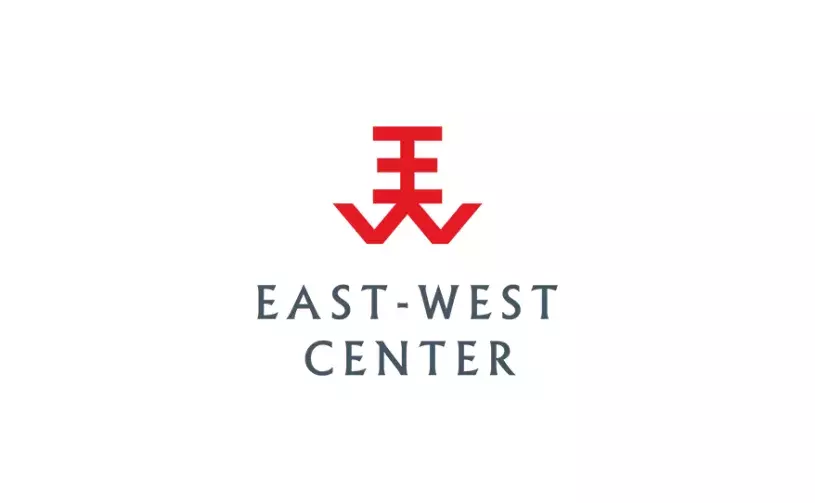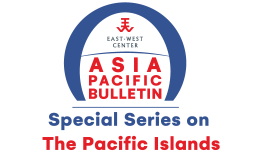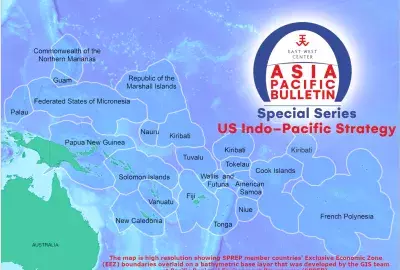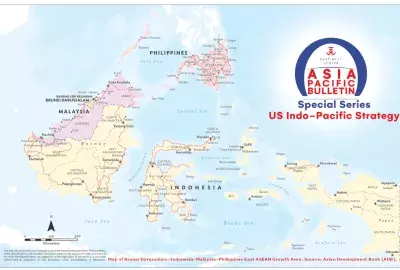

Emil Friberg, PhD., Adjunct Professor at Georgetown University, former Assistant Director/Senior Economist at US GAO, explains that "[a]nnual US Compact assistance is a strategic bilateral connection at a time of mounting security concerns."
The Compact of Free Association (COFA) agreements, which provide US economic support to the Federated States of Micronesia (FSM), the Republic of the Marshall Islands (RMI), and the Republic of Palau, are set to expire between 2023 and 2024. Renewing these agreements requires focused bilateral negotiations and agreement by the US Congress. Negotiations started in 2020 but made little progress. The US appointment of a Special Presidential Envoy for Compact Negotiations, former Ambassador Joseph Yun, in March 2022 was framed by concerns that China’s Pacific influence would grow in the wake of stalled COFA negotiations.
COFA History and Structure
The Compact agreements created three nations and special features of US relations with the freely associated states, including:
- Defense. The Compacts grant the United States “strategic denial”—the option to deny foreign militaries access to the COFA nations and provide for US defense sites, including at Kwajalein Atoll in the RMI. Also, the RMI Compact provided compensation for damages from 67 US nuclear tests. The agreement was the full settlement of all claims—past, present, and future—against the United States and terminated all compensation litigation.
- Immigration. The Compacts allow COFA citizens to work and reside indefinitely in the United States
- Economic Assistance. The Compacts committed the United States to provide annual economic assistance and specific programs, such as the US Postal Service (USPS), for set periods, ending in 2023 for FSM and RMI, and 2024 for Palau. Compact trust funds have been established to provide annual funding: since 1999 for Palau and after 2023 for FSM and RMI. The US Department of the Interior (DOI) administers COFA funds. Other US programs, including Pell Grants and USDA housing loans, are provided to COFA governments as they are to US states
COFA Funding and Experience
For the COFA nations, DOI Compact funding will total $10.4 billion (all dollars are FY 2023 dollars). Economic assistance to the FSM will be $5.4 billion, the RMI - $2.3 billion, and Palau – $1.2 billion. On a per capita/per year basis: $1,378 for the FSM, $1,135 for the RMI, and $2,193 for Palau. Compact funding also paid $737 million for military land leases and $707 million for nuclear testing responses in the RMI.
Established in 2003 to curtail poor accountability and performance, joint FSM-US and RMI-US committees and sector grants improved education, health, and infrastructure. Financial accountability improved over time, but weaknesses persist. The required Palau Advisory Group on Economic Reform has not been constituted. The Palau Compact Trust Fund will likely meet its objective to make payouts through 2044. While the FSM and RMI Compact Trust Funds were designed to be perpetual, funds will not be disbursed in some years due to structural restrictions on distributions. These interruptions will cause severe fiscal shocks. Overall, DOI staffing shortfalls have limited the federal government’s ability to ensure that Compact funds were used effectively. When asked, US Congress reduced its oversight by repealing the statutory mandate for Government Accountability Office (GAO) 5-year reviews.
In addition to escaping the impact of climate change and nuclear testing, COFA citizens have moved to the United States seeking economic opportunity, education, and health care. US census data (2013-2018) identified 94,000 Compact migrants.
Key Negotiation Actions
Deepen bilateral relations with grants
Annual US Compact assistance is a strategic bilateral connection at a time of mounting security concerns. Sustaining and increasing annual grants are the best way to strengthen and deepen relationships with COFA nations while providing resources for vital climate change adaptation efforts. In contrast, trust funds, which provide disbursements without US appropriations, ensure a more distant relationship. Also, proposals to further endow Compact trust funds will reduce the resources available for grants that address critical needs of immediate concern.
Embrace new and old issues
COFA nations identify climate change as their primary security issue and want direct US assistance. In response to this request, the US Department of Defense (DOD) should restore the Civic Actions Team (CAT) program with a focus on climate change and upgrading infrastructure (airports, ports, roads, and utilities) for both climate impact and to support “agile” deployments. DOD should also address illegal fishing that threatens COFA government revenue. Pursuing its aim as a critical political issue rather than a legal one, the RMI wants US action on outstanding nuclear issues, including compensation and nuclear waste cleanup.
Improve Compact implementation
Actions are needed to improve grant performance and accountability and to address the well-understood problem of FSM and RMI trust fund rules and disbursements. Existing FSM grant distribution among FSM states must be reassessed for improved performance. COFA nation and US Compact administration require proper staffing levels and capacity. Accountability requires transparency, including the public posting of bilateral agreements, budgets, reports, meeting minutes, and other documents. The issues of trust fund rules must be formally addressed, as any change requires Congressional approval.
Key Congressional Actions
Fund Compact renewal and extend US programs Timely funding of Compact renewal is essential for COFA government operations, and its absence will lead to a surge in migration. Congress can take other actions to deepen bilateral relations, including extending the Supplemental Education Grant (SEG) that expires in 2023, restoring FSM/RMI Head Start eligibility, and granting COFA nations routine eligibility to other federal programs. For example, the recent CARES Act extended pandemic unemployment assistance to COFA workers. For self-funded programs, such as USPS, Congress must create a funding mechanism to pay the COFA expense. Additionally, Congress should require the Peace Corps to redeploy in the Pacific, mandate adequate staffing for US Compact implementation, and reinstate required GAO reviews.
Address federal Compact coordination and migration
Currently, no federal body effectively coordinates COFA policy. Congress should reestablish an Interagency COFA Group, co-chaired by Defense, Interior, and State, and the Office of COFA Affairs under the authority of the National Security Council. Once established, the structure could coordinate government-wide responses to COFA climate impact and address Compact migration. No federal department is charged with monitoring or protecting this COFA migration right or addressing the migration impact inside the United States. Recent Congressional action restored migrant Medicaid eligibility, but other program eligibilities should be restored and a clear path to US citizenship established.

Emil Friberg, PhD., Adjunct Professor at Georgetown University, former Assistant Director/Senior Economist at US GAO, explains that "[a]nnual US Compact assistance is a strategic bilateral connection at a time of mounting security concerns."
The Compact of Free Association (COFA) agreements, which provide US economic support to the Federated States of Micronesia (FSM), the Republic of the Marshall Islands (RMI), and the Republic of Palau, are set to expire between 2023 and 2024. Renewing these agreements requires focused bilateral negotiations and agreement by the US Congress. Negotiations started in 2020 but made little progress. The US appointment of a Special Presidential Envoy for Compact Negotiations, former Ambassador Joseph Yun, in March 2022 was framed by concerns that China’s Pacific influence would grow in the wake of stalled COFA negotiations.
COFA History and Structure
The Compact agreements created three nations and special features of US relations with the freely associated states, including:
- Defense. The Compacts grant the United States “strategic denial”—the option to deny foreign militaries access to the COFA nations and provide for US defense sites, including at Kwajalein Atoll in the RMI. Also, the RMI Compact provided compensation for damages from 67 US nuclear tests. The agreement was the full settlement of all claims—past, present, and future—against the United States and terminated all compensation litigation.
- Immigration. The Compacts allow COFA citizens to work and reside indefinitely in the United States
- Economic Assistance. The Compacts committed the United States to provide annual economic assistance and specific programs, such as the US Postal Service (USPS), for set periods, ending in 2023 for FSM and RMI, and 2024 for Palau. Compact trust funds have been established to provide annual funding: since 1999 for Palau and after 2023 for FSM and RMI. The US Department of the Interior (DOI) administers COFA funds. Other US programs, including Pell Grants and USDA housing loans, are provided to COFA governments as they are to US states
COFA Funding and Experience
For the COFA nations, DOI Compact funding will total $10.4 billion (all dollars are FY 2023 dollars). Economic assistance to the FSM will be $5.4 billion, the RMI - $2.3 billion, and Palau – $1.2 billion. On a per capita/per year basis: $1,378 for the FSM, $1,135 for the RMI, and $2,193 for Palau. Compact funding also paid $737 million for military land leases and $707 million for nuclear testing responses in the RMI.
Established in 2003 to curtail poor accountability and performance, joint FSM-US and RMI-US committees and sector grants improved education, health, and infrastructure. Financial accountability improved over time, but weaknesses persist. The required Palau Advisory Group on Economic Reform has not been constituted. The Palau Compact Trust Fund will likely meet its objective to make payouts through 2044. While the FSM and RMI Compact Trust Funds were designed to be perpetual, funds will not be disbursed in some years due to structural restrictions on distributions. These interruptions will cause severe fiscal shocks. Overall, DOI staffing shortfalls have limited the federal government’s ability to ensure that Compact funds were used effectively. When asked, US Congress reduced its oversight by repealing the statutory mandate for Government Accountability Office (GAO) 5-year reviews.
In addition to escaping the impact of climate change and nuclear testing, COFA citizens have moved to the United States seeking economic opportunity, education, and health care. US census data (2013-2018) identified 94,000 Compact migrants.
Key Negotiation Actions
Deepen bilateral relations with grants
Annual US Compact assistance is a strategic bilateral connection at a time of mounting security concerns. Sustaining and increasing annual grants are the best way to strengthen and deepen relationships with COFA nations while providing resources for vital climate change adaptation efforts. In contrast, trust funds, which provide disbursements without US appropriations, ensure a more distant relationship. Also, proposals to further endow Compact trust funds will reduce the resources available for grants that address critical needs of immediate concern.
Embrace new and old issues
COFA nations identify climate change as their primary security issue and want direct US assistance. In response to this request, the US Department of Defense (DOD) should restore the Civic Actions Team (CAT) program with a focus on climate change and upgrading infrastructure (airports, ports, roads, and utilities) for both climate impact and to support “agile” deployments. DOD should also address illegal fishing that threatens COFA government revenue. Pursuing its aim as a critical political issue rather than a legal one, the RMI wants US action on outstanding nuclear issues, including compensation and nuclear waste cleanup.
Improve Compact implementation
Actions are needed to improve grant performance and accountability and to address the well-understood problem of FSM and RMI trust fund rules and disbursements. Existing FSM grant distribution among FSM states must be reassessed for improved performance. COFA nation and US Compact administration require proper staffing levels and capacity. Accountability requires transparency, including the public posting of bilateral agreements, budgets, reports, meeting minutes, and other documents. The issues of trust fund rules must be formally addressed, as any change requires Congressional approval.
Key Congressional Actions
Fund Compact renewal and extend US programs Timely funding of Compact renewal is essential for COFA government operations, and its absence will lead to a surge in migration. Congress can take other actions to deepen bilateral relations, including extending the Supplemental Education Grant (SEG) that expires in 2023, restoring FSM/RMI Head Start eligibility, and granting COFA nations routine eligibility to other federal programs. For example, the recent CARES Act extended pandemic unemployment assistance to COFA workers. For self-funded programs, such as USPS, Congress must create a funding mechanism to pay the COFA expense. Additionally, Congress should require the Peace Corps to redeploy in the Pacific, mandate adequate staffing for US Compact implementation, and reinstate required GAO reviews.
Address federal Compact coordination and migration
Currently, no federal body effectively coordinates COFA policy. Congress should reestablish an Interagency COFA Group, co-chaired by Defense, Interior, and State, and the Office of COFA Affairs under the authority of the National Security Council. Once established, the structure could coordinate government-wide responses to COFA climate impact and address Compact migration. No federal department is charged with monitoring or protecting this COFA migration right or addressing the migration impact inside the United States. Recent Congressional action restored migrant Medicaid eligibility, but other program eligibilities should be restored and a clear path to US citizenship established.







